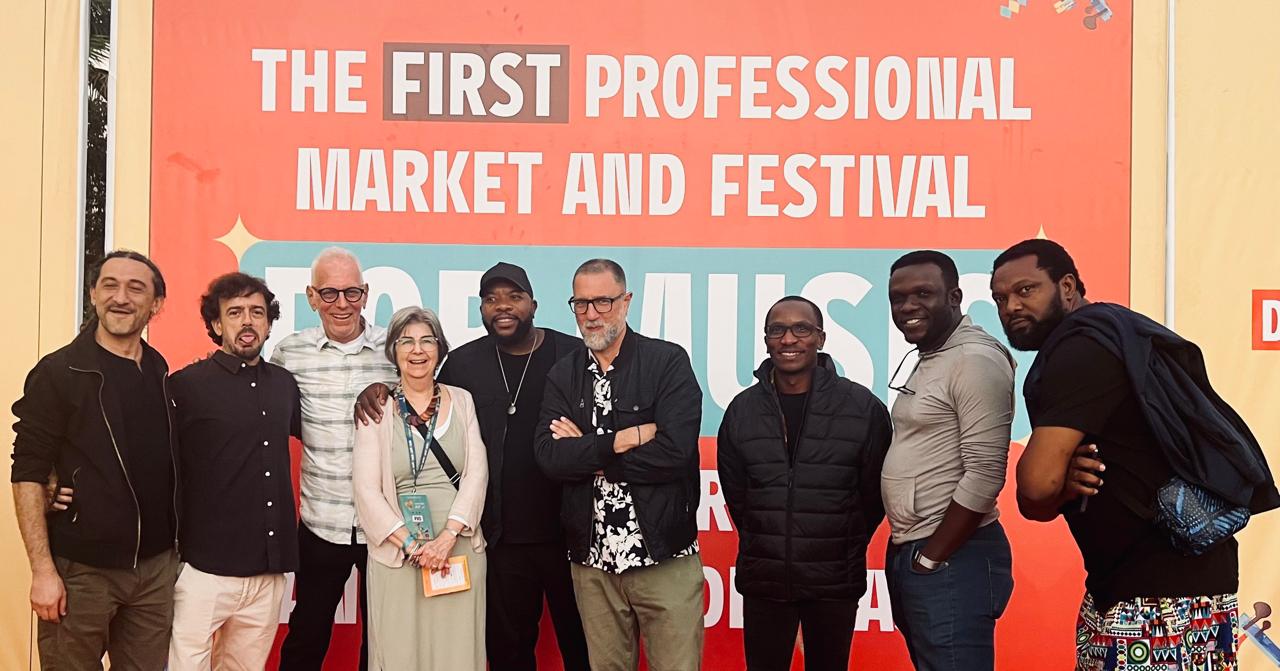
As the world marked International Jazz Day this week, the spotlight turned to the genre’s power to unite, inspire, and promote peace values, especially resonant across Africa’s culturally diverse landscapes.
For Katherine McVicker, founder of Arts Connect Africa (ACA) and director of Music Works International (MWI), jazz is more than just music; it is a powerful tool for education, diplomacy, community building, and youth empowerment.
McVicker, an industry veteran who has represented some of the world’s top jazz artists, believes Africa has an untapped reservoir of talent and an audience hungry for live music experiences.
Through Arts Connect Africa, she is working to connect international artists with African venues, festivals, and audiences in ways that promote sustainable cultural exchange.
Her message is clear: “Africa is ready for jazz, and jazz is ready for Africa.”
The celebration of International Jazz Day comes as Kenya is increasingly embracing jazz as part of its cultural fabric.
Events like the Safaricom International Jazz Festival have played a pivotal role in nurturing appreciation for the genre while giving local talent a platform to shine.
Launched in 2014, the Safaricom Jazz Festival has featured global legends like Hugh Masekela and Branford Marsalis, alongside Kenyan acts such as Shamsi Music, Nairobi Horns Project, and Jacob Asiyo.
“We didn’t know how Kenyans would respond when we started,” said one of the organisers during a previous edition. “But we were amazed at the turnout. Jazz is universal—it speaks to something deep in all of us.”
McVicker echoes this sentiment. She points out that jazz is particularly suited to African audiences because of its roots in improvisation, rhythm, and storytelling—elements found across many African musical traditions.
“Jazz was born from struggle and resilience,” she says. “It tells stories. And that resonates strongly in Africa.”
Through the ACA, McVicker is also building a touring circuit for jazz artists across the continent, aiming to reduce the logistical and financial hurdles that have long hindered music tours in Africa.
Her partnership with Kenyan venues like The Elephant in Nairobi—a creative space run by Eric Wainaina—and collaboration with local promoters are laying the foundation for consistent live jazz programming in the region.
“Kenya has a vibrant, curious, and musically literate audience,” she says. “There is potential not just in Nairobi but across the country—from Mombasa to Kisumu to Nakuru. We just need more infrastructure and investment.”
In that spirit, Arts Connect Africa is launching mentorship and education programs to build skills among young professionals in arts management, event production, and marketing.
McVicker notes that many talented artists across Africa lack the industry support systems common in the West. By empowering local talent behind the scenes, ACA hopes to ensure that music careers become viable and sustainable for African youth.
Kenyan jazz musicians are already taking the lead. Bands like Shamsi Music blend traditional Kenyan rhythms with contemporary jazz elements to create a sound that is distinctly local yet globally appealing.
“Our music tells Kenyan stories in a language the world understands,” says a member of the band. “It’s jazz, but it’s ours.”
Safaricom’s continued support for jazz has also created opportunities for youth education and social impact.
Proceeds from the festival have gone towards the Ghetto Classics program—a music education initiative based in Nairobi’s Korogocho slum. Through training and mentorship, hundreds of children have gained access to instruments, discipline, and hope.
“The transformation is real,” says one Ghetto Classics mentor. “Music has changed the lives of these kids. Jazz has given them a future.”
McVicker believes such programs illustrate why jazz is more than entertainment. “It’s about building communities, expanding minds, and creating new futures,” she says.
“Every time a child picks up a saxophone in Korogocho, or a young woman books her first tour in Nairobi, we’re seeing jazz do what it was always meant to do—liberate.”
As Kenya’s jazz scene matures, the need for a well-supported ecosystem becomes more urgent. More venues, public funding, regional collaborations, and corporate sponsorships could turn Kenya into a jazz powerhouse on the continent. The seeds have already been planted.
“I dream of a day when Nairobi is on every jazz artist’s tour schedule,” McVicker says.
“When Kenyan musicians play in Cape Town, Lagos, London, and New York—and bring their stories with them. Jazz is a global language, but it needs local voices to stay alive.”
As International Jazz Day fades from the calendar, its legacy endures in the passion of musicians, the curiosity of audiences, and the quiet determination of cultural workers like McVicker and her Kenyan collaborators.
Their work underscores that jazz is not just a sound—it is a movement, a mirror, and a map for a more connected, expressive, and empowered Africa.












